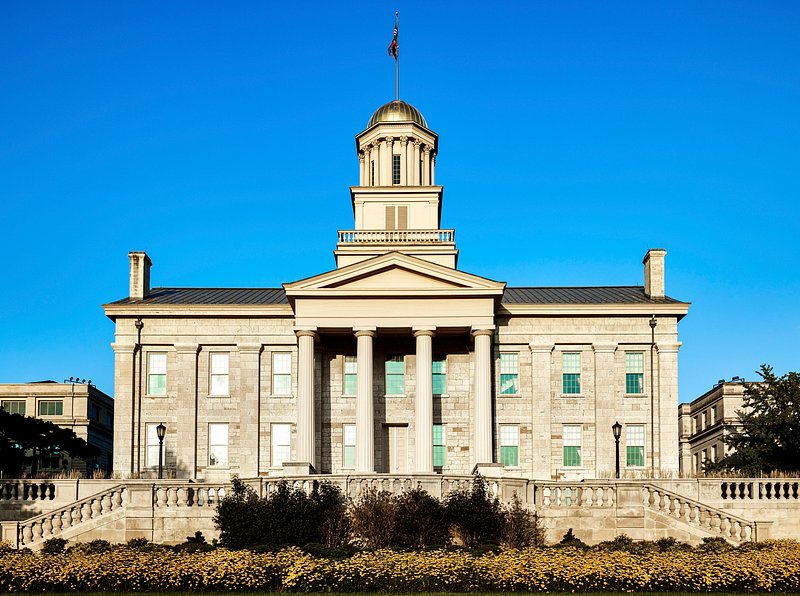South Dakota Could Boost Revenue by Repealing Online Sales Tax Remittance Credit
PIERRE — South Dakota lawmakers are examining an opportunity to bolster the state’s finances by revisiting a long-standing tax credit system. At a recent session held at the Capitol, the House Appropriations Committee discussed the potential repeal of a $70 monthly credit offered to businesses for filing their sales tax returns online. This move, backed by sound fiscal considerations, aims to redirect an estimated $6.8 million into essential government services, addressing declining sales tax revenues.
The proposal to eliminate the “sales tax collection allowance” comes by way of House Bill 1037. This allowance, currently available to businesses that opt for electronic filing, allows them to retain up to $70 of the collected sales taxes. The state’s Bureau of Finance and Management, led by Commissioner Jim Terwilliger, emphasized the potential benefits of rescinding this allowance during a presentation to the committee.
Jim Terwilliger, the Commissioner, articulated the necessity of this repeal not just based on immediate financial relief but as a strategic response to the broader issue of dwindling sales tax revenues. “At the end of the day, this is significantly different than repealing an exemption on the sales tax, because this tax is already being paid,” he argued.
Introduced back in 1990, the original purpose of the sales tax collection allowance was to incentivize electronic filing—a method that now accounts for nearly 80% of business tax submissions compared to 51% in 2013. With electronic filing now the norm rather than the exception, the financial incentive has outlived its purpose, according to the Bureau.
The discussion around redirecting this $70 credit towards essential services, such as education and infrastructure, resonates with many in a state committed to offering a favorable business environment while preserving fiscal health. Despite these priorities, some opposition exists.
Business Community’s Stance
Nathan Sanderson, Executive Director of the South Dakota Retailers Association, voiced the concerns of local businesses. Citing the allowance’s long history, Sanderson argued that its removal would effectively act as a $7 million tax increase on businesses—a sentiment shared by many local entrepreneurs.
He emphasized the allowance’s role in offsetting credit card transaction fees, a significant expense for businesses acting as intermediaries in the collection of state taxes. “This is a $7 million tax increase on businesses,” Sanderson said during his testimony, urging lawmakers to consider the allowance as recognition of the businesses’ role and responsibilities.
Throughout the session, various stakeholders, including economic development associations and representatives from the hospitality sector, echoed Sanderson’s sentiment. The removal of the allowance could increase operational costs for businesses, potentially dampening the economic vitality in regions like Sioux Falls and Rapid City, known for their burgeoning commercial activities.
South Dakota Bureau of Finance and ManagementDiverse Economic Interests
South Dakota’s economy thrives on varied sectors, from agriculture and tourism to manufacturing. The stability and predictability of tax policies can significantly impact these sectors. A balanced approach, considering the state’s fiscal health and the economic climate for its businesses, is paramount in such discussions.
According to reports, South Dakota has weathered economic downturns better than many states, thanks to its cautious and deliberate fiscal strategies. The challenge, however, is balancing new economic opportunities while safeguarding long-term stability. As such, innovative initiatives have been rolled out in the past, focusing on diverse areas such as school choice programs and prison reforms—a testament to the state’s adaptability and forward-thinking governance.
The state’s network of small to medium-sized enterprises stands as a testament to the entrepreneurial spirit prevalent among South Dakotans. The potential adjustment in tax remittance policy is yet another chapter in the ongoing dialogue between business interests and state governance. The outcome of this debate will likely set a precedent for how such financial policies are navigated in the coming years.
Outcome and Future Prospects
For now, the House Appropriations Committee has deferred action on the proposal, opting to await official revenue forecasts before making a definitive decision. This cautious approach reflects the state’s commitment to prudent financial management, ensuring well-informed fiscal policies that benefit both government agendas and economic prosperity for its citizens.
South Dakota stands at a crossroads, equipped with a rich history of responsible governance and poised for future growth. The decision regarding House Bill 1037 will not only influence the current budgetary allocations but also shape the state’s financial landscape in the years to come.
As legislators deliberate, the eyes of South Dakotans remain on Pierre, where every decision reverberates across the prairies, shaping the livelihoods and futures of its people. The business community’s role in facilitating state operations showcases a spirit of cooperation essential to navigating economic challenges.
For updates and more in-depth analyses on South Dakota’s financial policies and their impacts, subscribe to our newsletter. Stay informed about developments that matter to you and your community.
